Photo: Terry Lott/Sony Music Archive via Getty Images
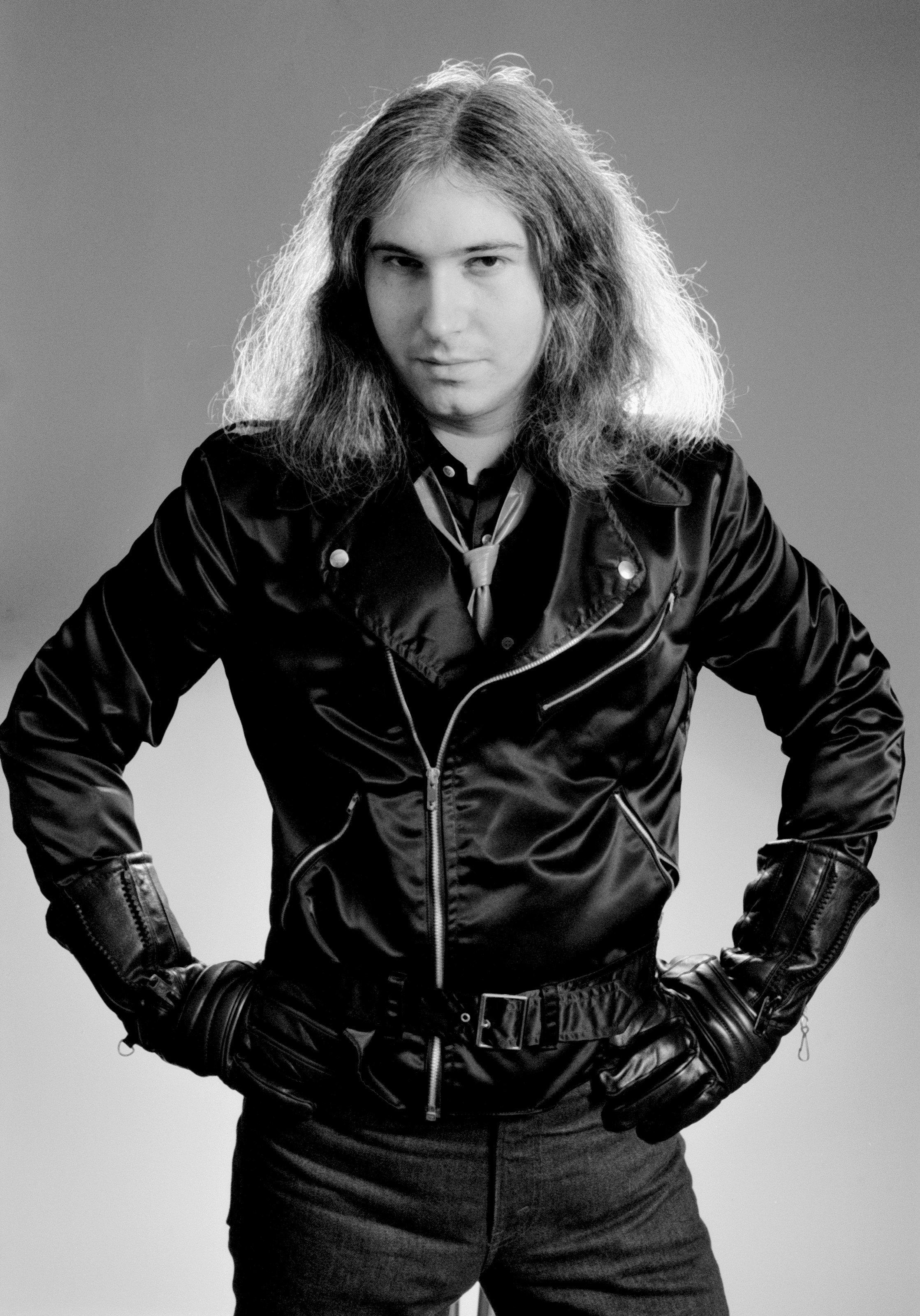
Jim Steinman
news
Remembering Jim Steinman: 10 Songs To Know
Exploding with raw emotion and outfitted with theatrical production, the music Jim Steinman concocted was in an effusive style all his own
If there’s ever been a rock ballad you can’t seem to get out of your head, chances are it was a Jim Steinman tune. Exploding with raw emotion and outfitted with theatrical production, the music the storied producer and writer concocted was in an effusive style all its own. News of Steinman’s death this week saddened the world, but the GRAMMY winner leaves behind an immense discography, including career-making hits for the likes of Meat Loaf, Bonnie Tyler and Celine Dion that will live on. Here are ten of Steinman’s most notable musical gems from a sparkling career full of them.
"Bat Out Of Hell"
<style>.embed-container { position: relative; padding-bottom: 56.25%; height: 0; overflow: hidden; max-width: 100%; } .embed-container iframe, .embed-container object, .embed-container embed { position: absolute; top: 0; left: 0; width: 100%; height: 100%; }</style><div class='embed-container'><iframe src='https://www.youtube.com/embed/3QGMCSCFoKA' frameborder='0' allowfullscreen></iframe></div>
One of Steinman’s most prolific collaborations in his illustrious run was with Micheal Lee Aday, better known as Meat Loaf. When the two met, Steinman was a fledgling writer of musicals and Loaf was a fledgling actor. The two came together to create their debut album, Bat Out of Hell, featuring a frenetic title track that Steinman hoped would be "the ultimate slash motorcycle crash song." Originally stemming from a rock-influenced musical version of Peter Pan, the project was routinely rejected thanks to its outlier style. "Everyone hated it," Steinman later said in an interview posted on his official website, noting he was turned down by at least 30 record companies. "I used to say at the time, there are people who just have a vague notion of someday starting a record company whose first act is simply to reject us," he joked. Turns out the joke was on them. Bat Out of Hell later became one of the best-selling albums of all time.
"Paradise By The Dashboard Light"
<style>.embed-container { position: relative; padding-bottom: 56.25%; height: 0; overflow: hidden; max-width: 100%; } .embed-container iframe, .embed-container object, .embed-container embed { position: absolute; top: 0; left: 0; width: 100%; height: 100%; }</style><div class='embed-container'><iframe src='https://www.youtube.com/embed/C11MzbEcHlw' frameborder='0' allowfullscreen></iframe></div>
An epic tale of teenage love, a karaoke classic, and a hallmark of classic rock radio all in one, "Paradise by the Dashboard Light" is another legendary Bat Out of Hell track that Steinman penned. The track is essentially a three-act musical in itself. At the heart of it, Meat Loaf infectiously and infamously begs his love interest: "Let me sleep on it." Steinman once said in an interview that he hoped people paid attention to the epic song’s third and final part: "You can’t get much bleaker than when [the lyrics say:] ‘I swore I’d love you until the end of time, I’ll keep that promise, I’ll keep that vow, and so now I’m praying until the end of time.'" He continued: "I just think that’s about as true and as bleak a thing you can say about the sexes and how they get together."
"I'd Do Anything For Love (But I Won't Do That)"
<style>.embed-container { position: relative; padding-bottom: 56.25%; height: 0; overflow: hidden; max-width: 100%; } .embed-container iframe, .embed-container object, .embed-container embed { position: absolute; top: 0; left: 0; width: 100%; height: 100%; }</style><div class='embed-container'><iframe src='https://www.youtube.com/embed/9X_ViIPA-Gc' frameborder='0' allowfullscreen></iframe></div>
Meat Loaf and Steinman did the impossible on 1993’s Bat Out of Hell II: Back Into Hell, the follow-up to Bat Out of Hell, by creating a slew of tracks that were somehow both increasingly epic and more successful than the original. Case in point: the gargantuan, 12 minute-long "I'd Do Anything for Love (But I Won't Do That)," a tongue-in-cheek ballad that turns romantic schmaltz on its head. The song went on to become Meat Loaf’s only Billboard No. 1 hit and later netted a GRAMMY for Best Rock Vocal Performance, Solo.
"It’s All Coming Back To Me Now"
<style>.embed-container { position: relative; padding-bottom: 56.25%; height: 0; overflow: hidden; max-width: 100%; } .embed-container iframe, .embed-container object, .embed-container embed { position: absolute; top: 0; left: 0; width: 100%; height: 100%; }</style><div class='embed-container'><iframe src='https://www.youtube.com/embed/j8fHNdrZTSI' frameborder='0' allowfullscreen></iframe></div>
"It’s All Coming Back to Me Now” was originally concocted for Steinman’s musical project Pandora’s Box and later intended for Meat Loaf who ended up recording it for 2006’s Bat Out of Hell III: The Monster is Loose. But it was Celine Dion who made the blisteringly emotional track off her Falling into You album famous. Dion's album won Album Of The Year at the 39th Annual GRAMMY Awards, earning Steinman a GRAMMY in 1996. The song's thundering lyrics inspired by Emily Brontë’s classic novel Wuthering Heights and over-the-top production, including the sound of clattering drums, is classic Steinman: boisterous and bubbling with passion. "I was trying to write a song about dead things coming to life," Steinman wrote about the song. "I was trying to write a song about being enslaved and obsessed by love, not just enchanted and happy with it. It was about the dark side of love and about the extraordinary ability to be resurrected by it once dead."
"Total Eclipse Of The Heart"
<style>.embed-container { position: relative; padding-bottom: 56.25%; height: 0; overflow: hidden; max-width: 100%; } .embed-container iframe, .embed-container object, .embed-container embed { position: absolute; top: 0; left: 0; width: 100%; height: 100%; }</style><div class='embed-container'><iframe src='https://www.youtube.com/embed/lcOxhH8N3Bo' frameborder='0' allowfullscreen></iframe></div>
"Total Eclipse of the Heart" is another rock ballad that packs a wallop thanks to both Steinman’s handiwork and a powerhouse female singer. Steinman wrote and produced the track for Welsh singer Bonnie Tyler. One of the biggest hits of 1983, he later explained the track was a tribute to the 1922 silent horror classic Nosferatu. "I had a vision of this woman lying on the ground looking at the moon like a sacrifice." The hit became so massive that it earned Tyler a GRAMMY nomination for Best Female Pop Vocal Performance for her efforts.
"Holding Out For a Hero"
<style>.embed-container { position: relative; padding-bottom: 56.25%; height: 0; overflow: hidden; max-width: 100%; } .embed-container iframe, .embed-container object, .embed-container embed { position: absolute; top: 0; left: 0; width: 100%; height: 100%; }</style><div class='embed-container'><iframe src='https://www.youtube.com/embed/bWcASV2sey0' frameborder='0' allowfullscreen></iframe></div>
A lighter Steinman classic sung by Tyler, "Holding Out For a Hero" was produced for 1984’s Footloose soundtrack. Steinman teamed up with the movie’s screenwriter Dean Pitchford to co-write the track featuring introductory synth drums and fast-paced piano, now synonymous with '80s-era culture. The song brought Tyler and Steinman another hit together. "I made two albums with Jim, despite my record company initially thinking he wouldn’t want to work with me," Tyler told Rolling Stone upon the announcement of his passing. "Thankfully they were wrong, and can say without any doubt that Jim was a true genius."
"Making Love Out Of Nothing at All"
<style>.embed-container { position: relative; padding-bottom: 56.25%; height: 0; overflow: hidden; max-width: 100%; } .embed-container iframe, .embed-container object, .embed-container embed { position: absolute; top: 0; left: 0; width: 100%; height: 100%; }</style><div class='embed-container'><iframe src='https://www.youtube.com/embed/ogoIxkPjRts' frameborder='0' allowfullscreen></iframe></div>
Peaking at No. 2 on the Billboard’s Hot 100 Chart in 1983 —only held back from No. 1 by the aforementioned Steinman hit "Total Eclipse of the Heart"—this Air Supply ballad is a heartfelt operatic rock track that serves as a rumination on passion. "I know just how to whisper," the song goes. "And I know just how to cry. I know just where to find the answers. And I know just how to lie." The song Steinman wrote and produced, like many others, originally intended for Meat Loaf.
"Left In The Dark"
<style>.embed-container { position: relative; padding-bottom: 56.25%; height: 0; overflow: hidden; max-width: 100%; } .embed-container iframe, .embed-container object, .embed-container embed { position: absolute; top: 0; left: 0; width: 100%; height: 100%; }</style><div class='embed-container'><iframe src='https://www.youtube.com/embed/st1bTsBQH-0' frameborder='0' allowfullscreen></iframe></div>
A testament to Steinman’s range, the music-maker also counts Barbra Streisand as an artist he helped craft a hit for. In 1984, they released "Left in the Dark," which tells the story of a cheating lover. The song was originally written for what would be Steinman’s only solo album as an artist (1980’s Bad for Good), but Streisand recorded the track that also takes production elements from another of his songs: Billy Squier's "All Night Long."
"Hulk Hogan’s Theme"
<style>.embed-container { position: relative; padding-bottom: 56.25%; height: 0; overflow: hidden; max-width: 100%; } .embed-container iframe, .embed-container object, .embed-container embed { position: absolute; top: 0; left: 0; width: 100%; height: 100%; }</style><div class='embed-container'><iframe src='https://www.youtube.com/embed/fKJDAVvs_JA' frameborder='0' allowfullscreen></iframe></div>
Any fan of wrestling knows that the mighty Hulk was a towering legend. The powerful fighter has Steinman to thank for his wrestling ring theme song released commercially in 1985. Sung by Rick Derringer, the song is another impressive notch on Steinman’s incredible grip on '80s culture throughout music, film and sport.
"Read ‘Em And Weep"
<style>.embed-container { position: relative; padding-bottom: 56.25%; height: 0; overflow: hidden; max-width: 100%; } .embed-container iframe, .embed-container object, .embed-container embed { position: absolute; top: 0; left: 0; width: 100%; height: 100%; }</style><div class='embed-container'><iframe src='https://www.youtube.com/embed/aUtDL_mIA4c' frameborder='0' allowfullscreen></iframe></div>
Released by Barry Manilow in 1983 (and subsequently becoming his most recent Top 10 hit), "Read ‘Em and Weep" was written by Steinman and produced by both him and fellow music powerhouse Jimmy Iovine. However, the song wasn’t intended for Manilow originally, with Steinman penning the rock ballad for, you guessed it, Meat Loaf. "If I could only find the words I could write it all down," the song proclaims. It’s an ironic statement, considering that Steinman never seemed to be at a loss for the perfect lyric.

Photo: Gary Miller/Getty Images
interview
Los Lonely Boys Resurrected: The Sibling Rockers Talk Their New Album, Return To The Road & Family Magic
"When we got back together and started jamming…it just felt right, fresh," says Ringo Garza. Along with brothers JoJo and Henry, Los Lonely Boys share how their love for music and family led to their first album in 11 years, 'Resurrection.'
Los Lonely Boys have found success in spades over the past two decades, thanks in no small part to their familial bonds.
Following in the footsteps of their musician father Enrique Garza, Mexican American brothers JoJo (vocals, bass), Henry (guitar, vocals) and Ringo Garza (drums, vocals) formed Los Lonely Boys in 1997. Their dynamic, "Texican Rock ‘n Roll" sound netted the group a GRAMMY in 2005, as well as five career total nominations. Throughout their career, togetherness has remained an important component of their artistry.
"We're homebodies, we're family men and this is where we're most happy," JoJo Garza tells GRAMMY.com. "But when we get out there and we're on stage and we're in a different city, different state or whatever, the way that people make us feel like family is, it's a home away from home feeling."
That feeling inspired the band to reunite in 2022 after a four-year hiatus. Their return tour, which included several shows with the Who, went so well that they decided to also get back into the studio and record new music. On Aug. 2, the band will release their first album of new music in 11 years, Resurrection. Each song on the album sounds different, highlighting Los Lonely Boys' roots in Texas blues, soul, country, and Tejano music.
"When we got back together and started jamming, I think the rejuvenation, it came natural, the same, and it just felt right, fresh," says Ringo Garza. "I think our playing is the same as anything that gets older. If it doesn't start to rot, it gets better."
The Garza brothers have built their success through belief in one another. It paid off early on, when San Angelo, Texas club owner John R. Steele hired the group as his house band (and later became LLB's road manager). They also supported their musician father before branching out as a trio. In 2003, they struck gold when they got the opportunity to record their self-titled debut album at Willie Nelson's Pedernales Recording Studio in Austin.
Released in 2004, Los Lonely Boys' lead single, "Heaven," hit No. 1 on the Billboard adult contemporary chart and reached the top 40 on the Billboard Hot 100. The following year, the song took home a golden gramophone for Best Pop Performance by a Duo or Group with Vocal.
Their success allowed them the chance to collaborate with the other musicians. Los Lonely Boys partnered with Santana on 2005's "I Don’t Wanna Lose Your Love," performed with Ronnie Milsap on an episode of "CMT's Crossroads," and released music with Dr. John, Enrique Garza Sr. and Willie Nelson. LLB also released a string of popular studio albums, including 2006’s Sacred, 2008’s Forgiven, 2011’s Rockpango, and 2013’s Revelation.
Recorded in part at Henry’s home studio in Texas, Resurrection finds the trio continuing to channel their love of making music together. Their unique sound continues on the album, featuring everything from the Beatles-eque pop of "Wish You Would" to the smooth R&B and soulfulness of "Dance With Me."
Family continues to be important for the brothers. The album comes at a challenging period as they’ve tried to help and make their father comfortable after he suffered a stroke and heart attack earlier this summer. Ahead of the Resurrection's release, the group spoke with GRAMMY.com about the importance of their brotherly bond and how music has a magical quality that lets them connect with others.
This interview has been edited for clarity and brevity.
The new album is the band’s first in 11 years and comes on the heels of a recent return to the road. What brought everyone back together?
Henry Garza: We got to give all that credit to the man upstairs, brother. Of course, we could take some little bit of credit for that being brothers and family, but we accredit the higher power man. It's just the way things happen. It's like why are the stars in the places they are and why did that one shine brighter tonight than the last?
JoJo Garza: We need to pay our bills, man. I'm kidding. I mean, it is our livelihood, but it ultimately comes down to realizing that we still have a major purpose. While we have life in our bones, we still have a purpose to express what the creator has given us as a blessing, but also to express purpose in needing to show how important music is and what it means to us to do with it.
Henry: Yeah, we’ve got to still keep spreading that message of love through music.
What made the band start thinking about creating new music?
JoJo: We never stopped creating music. Even when we took our much-needed sabbatical, we were still in the process of always writing music. And I think when Covid happened, that really put a halt on what musicians could do as far as touring goes. So, we were able to really sort of almost start over. The songs that we chose for the album were given an ample amount of time to be something we felt really positive about.
Some of [those songs] are about having a good time and a lot of them are about life's lessons, but there's a few tunes in there too that are really, really deep as far as offering some input to the people, to the youth, as well as people in our age bracket as well.
JoJo: We were also personally affected by losing some family members and things like that, just like everyone across the world. Whenever we finally did regroup and saw each other for the first time, one of the first things we did was we gave each other big hugs and big kisses and a lot of crying.
I know that Henry and Ringo had done some work together. One of the first things I told Henry when I had heard "Send More Love" was the last time he had delivered a song like this it went global, we went worldwide. We won a GRAMMY.
It's got the basis of what was going on through Covid and it's kind of like a letter to or a phone call to the man upstairs saying, "Hey, could you send more love down here because this world is going crazy."
Was it challenging starting to play again after a few years apart?
Henry: Oh man. It was hard to remember any of the songs that we had played. It was a really emotional gettogether. When we first started rehearsing again together, every song that we played, even old songs, tears were falling because you just didn't know during that time if and when that was ever going to happen again.
Were there things the band was able to do better or differently on 'Resurrection' with everyone older and wiser?
JoJo: I think as far as the music goes, it’s very apparent that we have matured and grown. We actually embraced a little bit more of the digital aspect of what you can do in a studio.
Henry: There was growth during that period with technology for us and getting into the actual recording part of it ourselves and creating a studio to do the work in. We never had that gift or the comfortableness to be able to do that. We were always recording in somebody else's studio where you're paying a thousand dollars for every second that counts. So, we had some kind of freedom to be able to do that on our own and we grew in that aspect.
JoJo: We were always a live band, [that recorded live to tape]. The magic happens when you're live because then you can't go back and recut it or you can't go back and overdub it. Even when you record a live show, there's just a spark between each of us, a connection that it's really hard to capture. But building our own little studios and having the ability to do it ourselves, it's actually brought us closer and to the idea of maybe we should do a little more of this or a lot more of this instead of having to tour so much. So, that's in the cards for Los Lonely Boys as well. Squad goals.
My brothers gave me the opportunity to sit in the producer's seat on most of these songs. I was actually mixing some of the record while driving from Texas to California, listening in the car speakers. I was able to tell him, "Oh no, this has too much bass. We need to move that to the left or the right. Let's swap places." The ability to do that. Mix a record while you're driving. Come on man.
The band’s sound has been called "Texican Rock n' Roll" due to the diverse influences and that continues with this new album. Why is it important to have that dynamic, diversified sound?
Henry: We created what we call Texican rock and roll, which is anything and everything that has to do with real music from real musicians. This record really still expresses that about what we're about: family, love, brothers, the message of truth through music and resurrection. There's a little bit of flavor of everything in these songs, so it's kind of hard to just classify it as a certain genre.
Ringo Garza: Every single one of our albums has always had a song that you could put in another genre of music, country or pop or rock.
JoJo: It really is because we don't see or feel the boundaries between music. What we promote is not exclusivity, but inclusiveness because we're all one people…We're the human race and music is food for the soul.
Henry: Our dad taught us that music was the universal language, it didn't matter where you were from even if you didn't understand what they were saying. It speaks to everybody all across the board. I think that's our main focus with music.
Ringo: When I'm recording drum tracks or vocal tracks, I want my brothers to be impressed more than anything in the world. My brothers and my family. When we can get a song together and it brings a tear to our eyes and makes us love each other even more, that's what I strive for.I think my brothers are the same in that aspect of trying to impress and please one another.
You've all followed in the footsteps of your father, who himself had a band with his brothers called the Falcones. Why is that brotherly bond and honoring tradition so important?
Henry: If you can imagine a cup being filled with water and it spills over and there's another cup that takes on that water too. Our dad did it with his brothers, our mom's family did it with their brothers and my grandpa. Music was so natural, we thought everybody did it growing up. We owe all that to our greatest teacher, which of course for us is our dad. It began with him, and he’s our biggest hero.
He's the guy that showed us anything from the Beatles to Willie [Nelson] and Waylon [Jennings] to Richie Valens to Fats Domino. Every song he showed us growing up, we thought he wrote all those songs that he was showing us, and we believed he came on the radio, and we'd be like, "They're playing your song." He didn't deny it either.
Ringo: Having each other to play in this band together, it was just as natural as being brothers. I think when we were younger, we knew that we were brothers and we were a band, but I don't think that really dawned on us until we started playing out everywhere and knowing that there's not too many bands of brothers. I think that's where our strength comes from.
JoJo: We're family first. Even if we were doctors or we were lawyers or roofers, we were always going to stick together because that's the way we were raised. That's part of our destiny and that's part of what we're here to express. As beautiful it is as it is to have friends and extended family or whatnot. There's nothing like having true family, true blood.
This year marks the 20th anniversary of Los Lonely Boys' debut album and one of your biggest hits "Heaven." What do you recall about recording that record?
Henry: The way we grew up, we had zero expectations for anything because it just wasn't in the cards for where we came from. We were completely shocked and completely amazed when we were grabbing success.
Ringo: When we were younger playing and writing and recording, we knew that if we continued something was going to happen. But I don't think that we ever thought to ourselves, Hey, let's put this on the album so we can win a GRAMMY or so that we can sell millions of records.
JoJo: We have a very close connection to all the songs [on our debut album], but when it came to "Heaven," that was the only song that it seemed like everybody would pick on. All the people that were the Lonely team [were] basically saying that they didn't see nothing special in that song. The special thing to us was that it was a prayer that Henry had written that he was instructed to write down as a song. So, what a turn of events for everyone that said "nay" to have it turned up being the song.
Ringo: The first single was supposed to be "Real Emotions," and when we sent out [our music to radio stations in Austin], DJ Jody Denberg played "Heaven" instead. It lit the fire. It stayed up there [on the charts] for a little bit, and it broke. We're still able to reap the benefits of that.
What was your favorite memory of working at Willie's studio?
Henry: We can't talk about that man. Oh man. [Laughs.]
JoJo: The fact that we were there in a place that belonged to Willie Nelson. We had seen him on TV and heard him on the radio or whatever, you don't imagine that you're going to be that close to people. Basically, that was his home away from home. And so that's pretty freaking huge, man.
Henry: I'll never forget him driving up in his pickup and visiting us while we were outside drinking a couple of herbal refreshments. He treated us just like family. There's a lot of things to remember, but I think the fact that Willie was even around or took the time to make that connection with us.
JoJo: We were able to start meeting other artists and things like that, but he was the first one that said "these guys got something special. You might want to check him out."
Henry: Right around that time when we were recording the record, 9/11 had happened. "Heaven" was the only song that was recorded that day, on the day that the Twin Towers were hit and everything, man.
You later recorded a song with Willie and your dad called "Outlaws." What was your favorite memory from working on that song?
Henry: Our dad always considered himself the missing outlaw. So just to be working with Willie and having our dad work with him and be on the same song, man, that was the treat in itself. TWhen we hear that song, it's like tears to the eye because we were given the blessing to help our dad's dream come true a little bit.
Ringo: And it's a rocking song. It's pretty badass.
The album’s title 'Resurrection' continues the trend of using religious terminology. What drew you to that word?
JoJo: You can definitely tie it to religion, but resurrection exists without religion. When you look at how grass dies every winter and comes back to life and how trees, leaves fall through the fall and the winter and then they return. And resurrection is also like music. It's a gift that most people don't recognize as a gift or as something considered resurrection.
The reason we chose the term resurrection is because we were off the road for nearly three years and we weren't even sure we were going to play again. When we finally made that decision to come back I felt like…I mentioned the trees, the grass, how the sun rises and sets every day. It's a constant resurrection.We were given a chance to breathe new life into something.
Ringo: I love the fact that it does bring people closer to our father, closer to the love of this world in just that name.
Henry: When you got a band like us who won a GRAMMY for a song called "Heaven," and I think that speaks all in itself. So, when you hear a name title for a record called Resurrection, it ties into what we believe and how we were brought up, but it's definitely not something that we were going to go off and say that "Hey, this is religious."
What songs from the album surprised you most and how they came together?
Henry: Oh man, all of them. Songs seem to come out of thin air sometimes. Even when you try to write a song, it doesn't [always] happen. So, all of them are really just a surprise.
JoJo: Our song "Natural Thing" is really special because something we had already had [written years ago]. The way Ringo delivered it, I can't wait for the rest of the world to be able to hear this song. Ringo usually sings one song per album or something like that, but this one is very dear to us, but it's also very dear to Ringo because he sang it to his wife at their wedding.
Henry: It's a resurrected song.
JoJo: It really is. That's the true resurrection on the album.
The band's song "Wish You Would" has a pretty encouraging message about going for your dreams, while being careful. And conscient. Has becoming parents and grandparents shifted your perspective?
JoJo: We've been parents for a long time. Some of our oldest kids are in their twenties...There’s the old saying of "be careful what you wish for." If you're not careful about what you call dreams and aspirations, it can come with some serious consequences.
Another song on the album, "See Your Face" is a very emotional one as it pays tribute to your mother who passed away in 2015 as well as other family and friends. How was it helpful writing that song?
Henry: It's about our mother and how memories are in your head when you haven't seen someone for so long. You don't want to forget their face, but it's crazy how a memory pops up and you wish you could just hold it and control it.
Henry: Our dad had a massive stroke and a heart attack at the same time. And it's been a really tough time right now.
Ringo: It’s crazy how that song came out and the video and everything having to do with our mama and our dad is having a pretty rough time. Nothing is coincidental. Everything is meant to be, there's no such thing as coincidence.
JoJo: "Wish You Would" and "See Your Face" are kind of intertwined. That's one thing we're here to really express to people, is tell the people you love them or you're going to wish you would because someday you're going to be wishing just to see their face.
JoJo: Do it while you have the time, express to the people that mean the most to you, that they mean that to you.
Ringo: I think it ties into even "Send More Love" because I think a lot of that is being forgotten.
Henry: Love is growing cold in this world, man.
JoJo: We do music purely because first off, it's a given to us. Secondly, we do it purely for the music and each song that is given to us sort of appears out of thin air. It's definitely given from the creator of all things. There's nothing greater than being able to have the consciousness that we're given as human beings to be able to express these things so deeply.
The Latest News About Latin Music

Los Lonely Boys Resurrected: The Sibling Rockers Talk Their New Album, Return To The Road & Family Magic
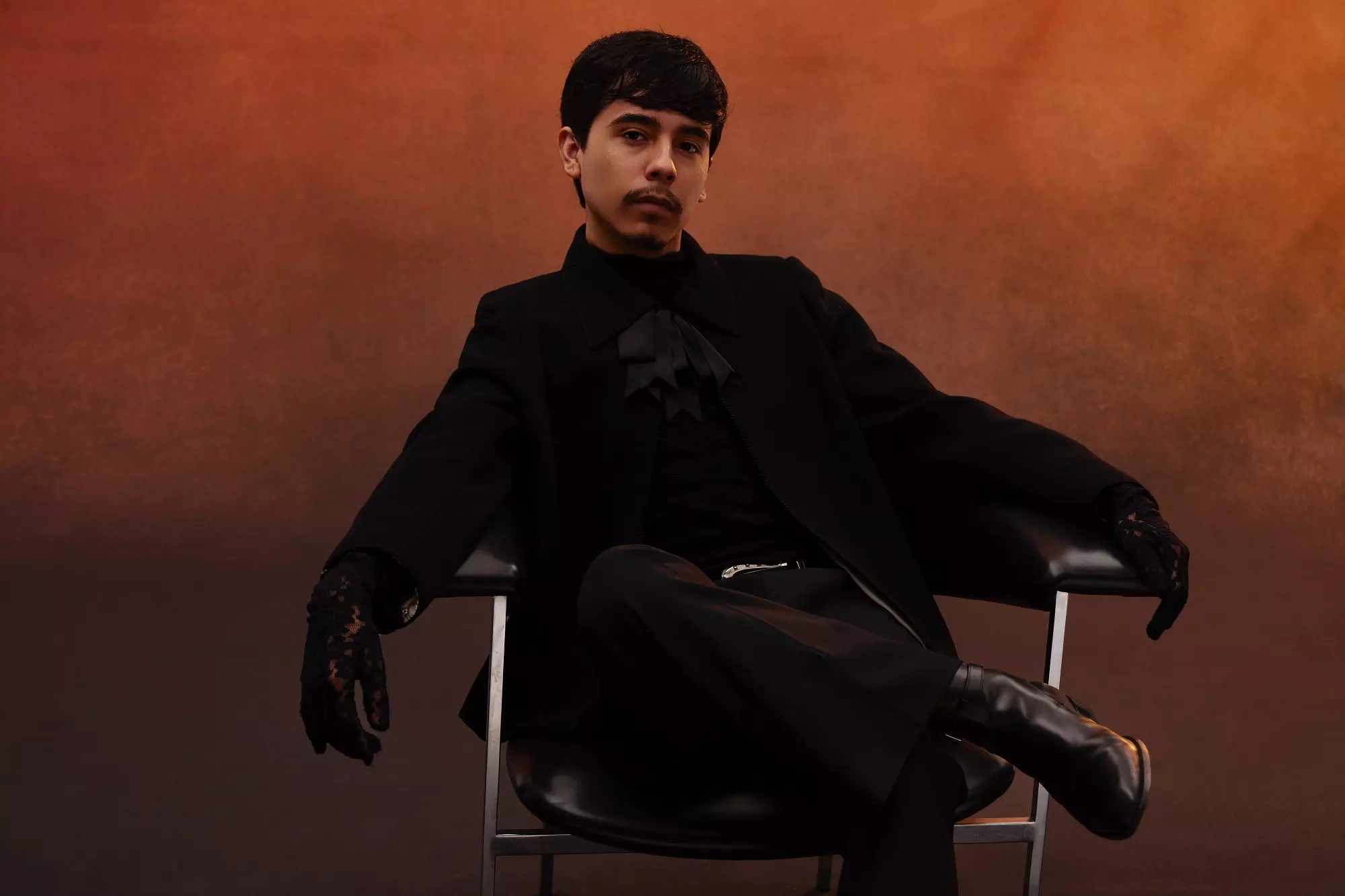
On 'Mirada,' Ivan Cornejo Redefines The Sound Of Sad Sierreño And Helps Fans Heal Through Music
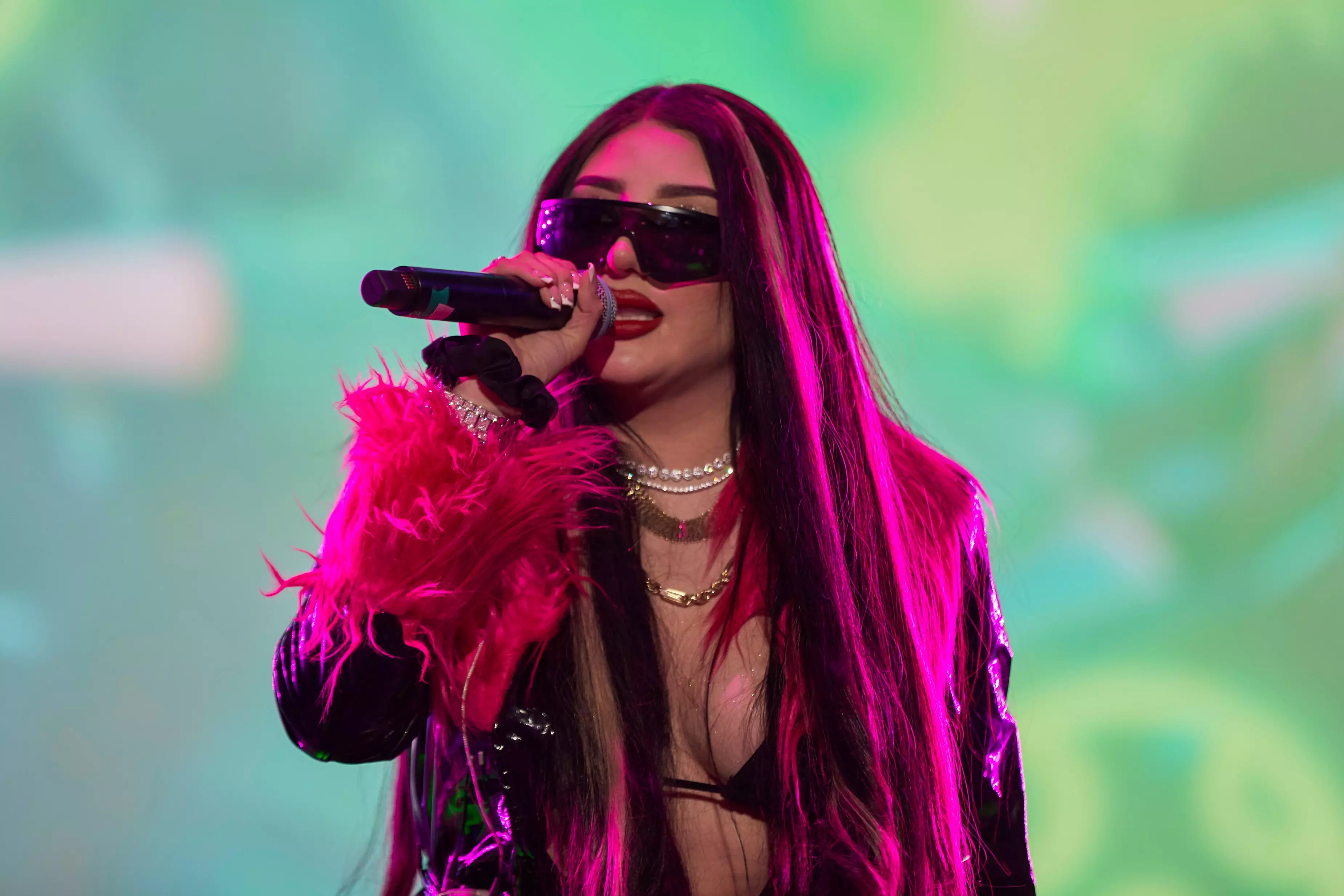
7 Artists Bringing Reggaeton Mexa To The World: El Malilla, Bellakath & More
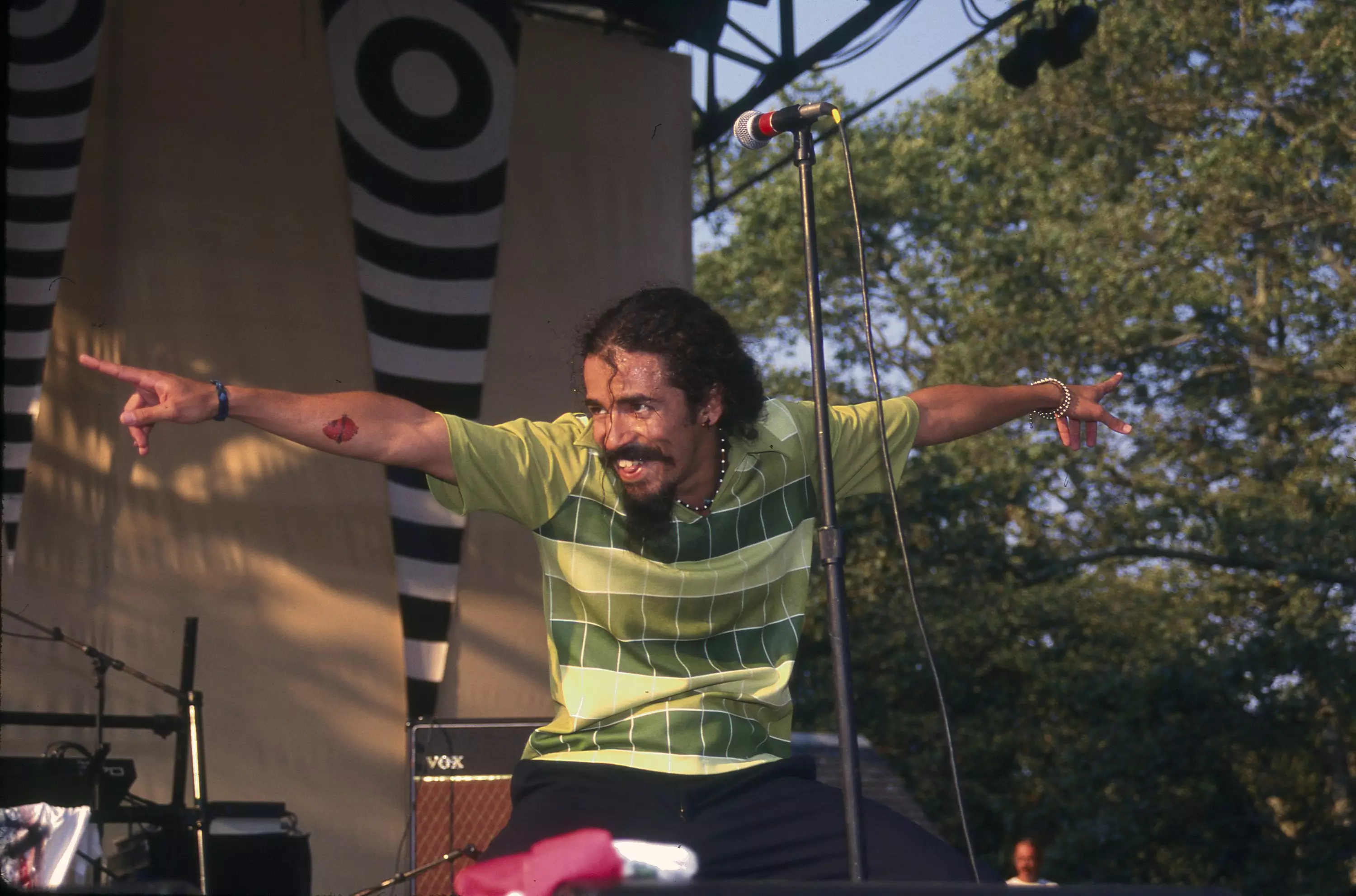
Revisiting 'Re': How Café Tacvba’s 1994 Masterpiece Changed Mexican Music Forever
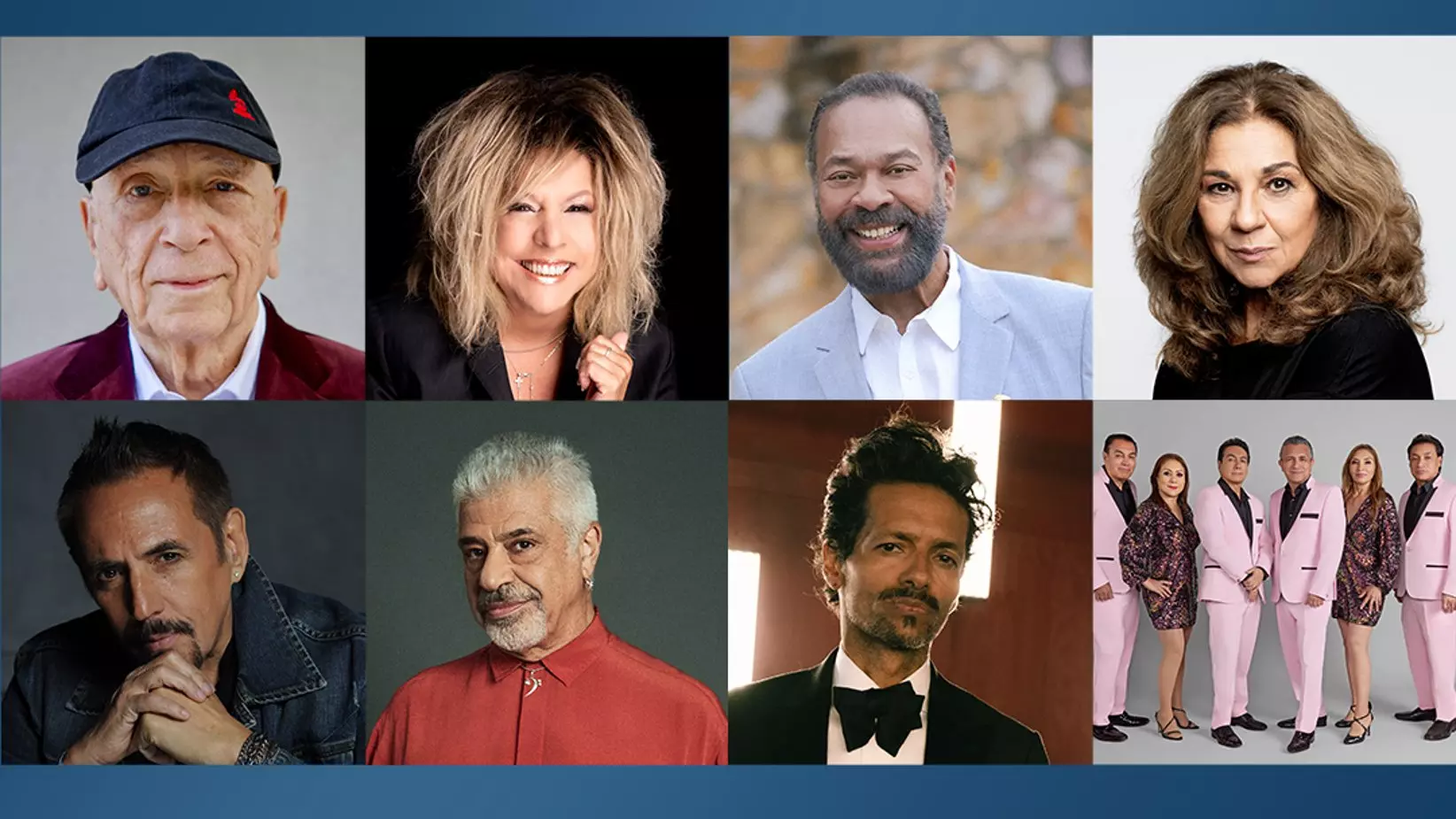
The Latin Recording Academy Announces 2024 Special Awards Recipients: Los Ángeles Azules, Draco Rosa, Albita, Lolita Flores & More

Photo: Rob Fenn
photo_gallery
Tour Diary: Inside The Pretty Reckless' Trek With AC/DC, When Taylor Momsen Became "Batgirl"
As The Pretty Reckless prepare for their last few shows on AC/DC's Power Up Tour, singer Taylor Momsen shares photos and highlights from their European adventure — rabies shots and all.
While she began her career as a child actor, Taylor Momsen has spent the past 14 years serving as the fearless frontwoman of rock group The Pretty Reckless. But perhaps no career milestone has been as much of a childhood dream come true for Momsen as their latest venture: AC/DC's Power Up Tour.
The Pretty Reckless are supporting the Australian rock gods during the European leg of the 24-show stadium tour, which kicked off in Gelsenkirchen, Germany on May 17 and wraps in Dublin on Aug. 17. As Momsen recalls, the opportunity came as the group was just beginning to work on their next album.
"We were in the studio…when I got a text from my agent that simply read 'AC/DC with the Pretty Reckless, all dates, no openers.' My mind was blown," she tells GRAMMY.com. "I love recording, probably more than anything in life, but when AC/DC calls…you answer, and you say YES. It's an honor and a privilege to be asked to share their stage."
Momsen makes sure to catch AC/DC's set every night, confirming that — even five decades into their career — they are "nothing short of a force of nature" on stage. And though the tour has resulted in rabies shots for Momsen (more on that later), the tour has been an experience she and her band will cherish forever.
"We're having the time of our lives with them," Momsen adds. "I never want this summer to end."
Below, Momsen shares stories of onstage and behind-the-scenes photos from The Pretty Reckless' summer tour with AC/DC — including the exact moment that she became "Batgirl."
Saying hello to a sold-out stadium in Gelsenkirchen, Germany. AC/DC are in the DNA of our band, so to say we were excited is an understatement. (Veltins-Arena, Gelsenkirchen, Germany; photo by Rob Fenn)
The best part about touring with AC/DC? Getting to watch them every night.Here I'm with with my beloved manager Chris Ruff with the titans of rock behind us. (Veltins-Arena, Gelsenkirchen, Germany; photo by Steph Gomez)
So I guess now is a good time to talk about…the bat. I was just minding my own business singing (appropriately) "Witches Burn" [at our next show in Seville, Spain] when the audience all started pointing and screaming. It took til the end of the song to figure out what happened… (RCF Arena, Reggio Emilia, Italy; photo by Rob Fenn)
...but the jumbotrons caught it all. There it is, clinging to me. The noise must have scared the hell out of it. (Estadio de La Cartuja, Seville, Spain; photo courtesy of Taylor Momsen)
Then came the [rabies] shots…that was not fun for a loooong time. Ten shots over weeks in multiple countries. (Seville, Spain; photo courtesy of Taylor Momsen)
Then came the jokes. (All with love from the amazing AC/DC crew, love you Super!!) (Vienna, Austria; photo by Steph Gomez)
Then came the nickname Batgirl. Can't escape it, so just own it! (Vienna, Austria; photo by Steph Gomez)
When almost every show is over 100,000 people, you start to really see the scope of the impact rock and roll can have. It's a sea of people all there for the same reason: to ROCK. (Dresden, Germany; photo by Rob Fenn)
Packing for three months in Europe can be daunting…and bus parking lots are never the easiest place to organize. (Dresden, Germany; photo by Steph Gomez)
A rainy night in Dresden on one of the most beautiful streets I've ever seen. (Dresden, Germany; photo by Taylor Momsen)
Getting stage ready… (Wembley Stadium, London, England; photo by Rob Fenn)
Hello Wembley! (Wembley Stadium, London, England; photo by Rob Fenn)
Getting to hang with these amazing people makes everything worth it. I can't thank them enough, but to show my love for AC/DC I had to do something. (Wembley Stadium, London, England; photo courtesy of Taylor Momsen)
So we made them a life sized cake of Angus's infamous Back in Black guitar. (Wembley Stadium, London, England; photo courtesy of Taylor Momsen)
Jamie's drum rack is like an anchor for me on stage, it's how I find my center. (Hockenheimring, Hockenheim, Germany; photo by Rob Fenn)
When you show up to a country you've never been to and there's back to back murals of yourself and Angus, you feel humbled for sure, it's been an amazing ride so far beyond our wildest dreams. (Bratislava, Slovakia; photo courtesy of Taylor Momsen)
In the end, it's all about the music, the passion, the love, the power. It's an honor to be able to do this, and to share it with so many people, and to have icons whose posters you had on your wall as a kid and t-shirts you wear til there's holes in them invite you to join them on an amazing journey. Thank you to AC/DC and crew, and everyone involved in such a massive undertaking to bring music to the masses. My love to you all. (London, England; photo by Rob Fenn)
Latest News & Exclusive Videos
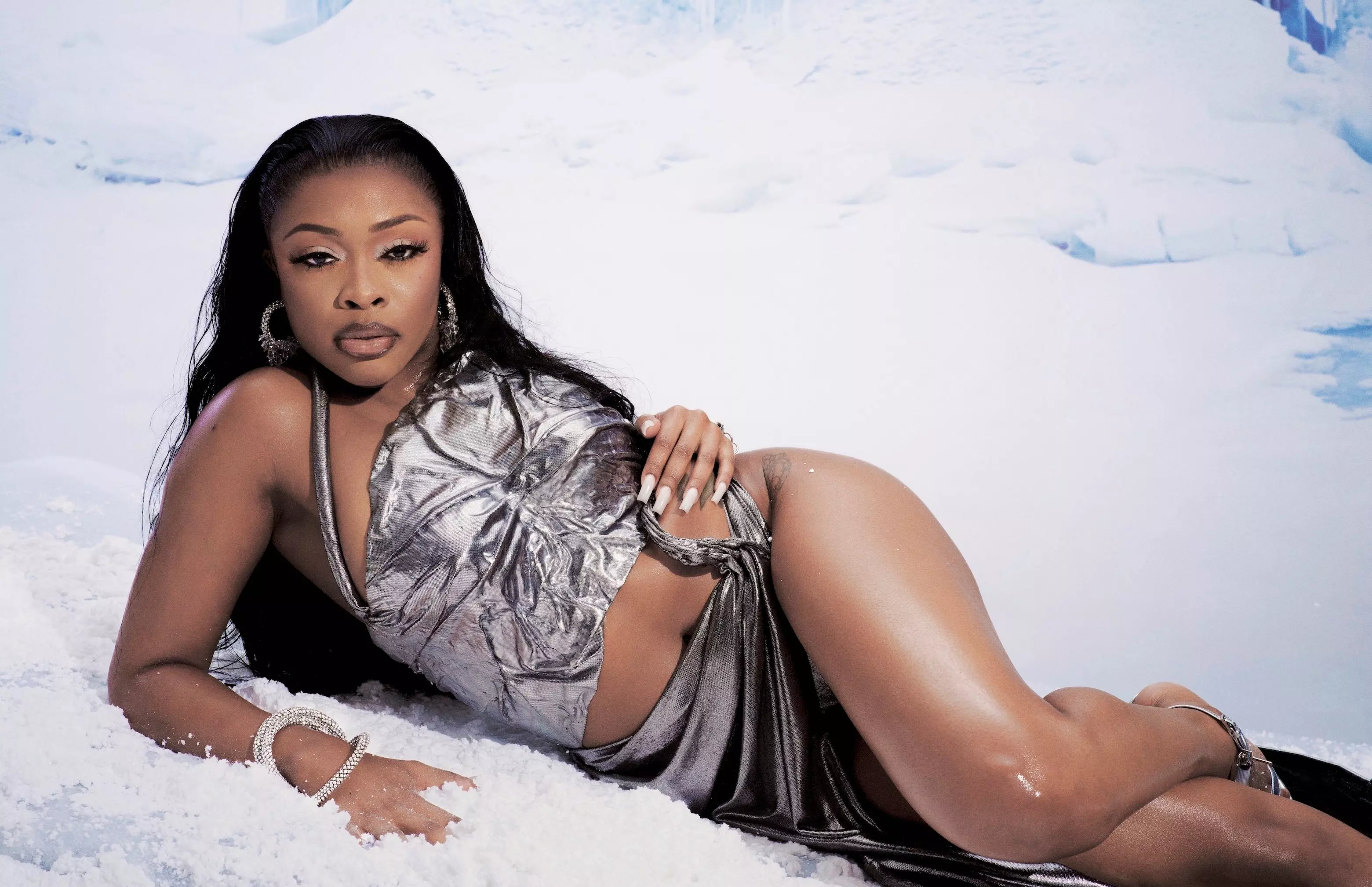
With Her 'Winter's Diary' Return, Tink Is Ready To Rep For "The Girls Going Through It"

New Music Friday: Listen To New Songs From ATEEZ & G-Eazy, Shawn Mendes, Latto, & More

Watch Alanis Morissette Win At The 1999 GRAMMYs
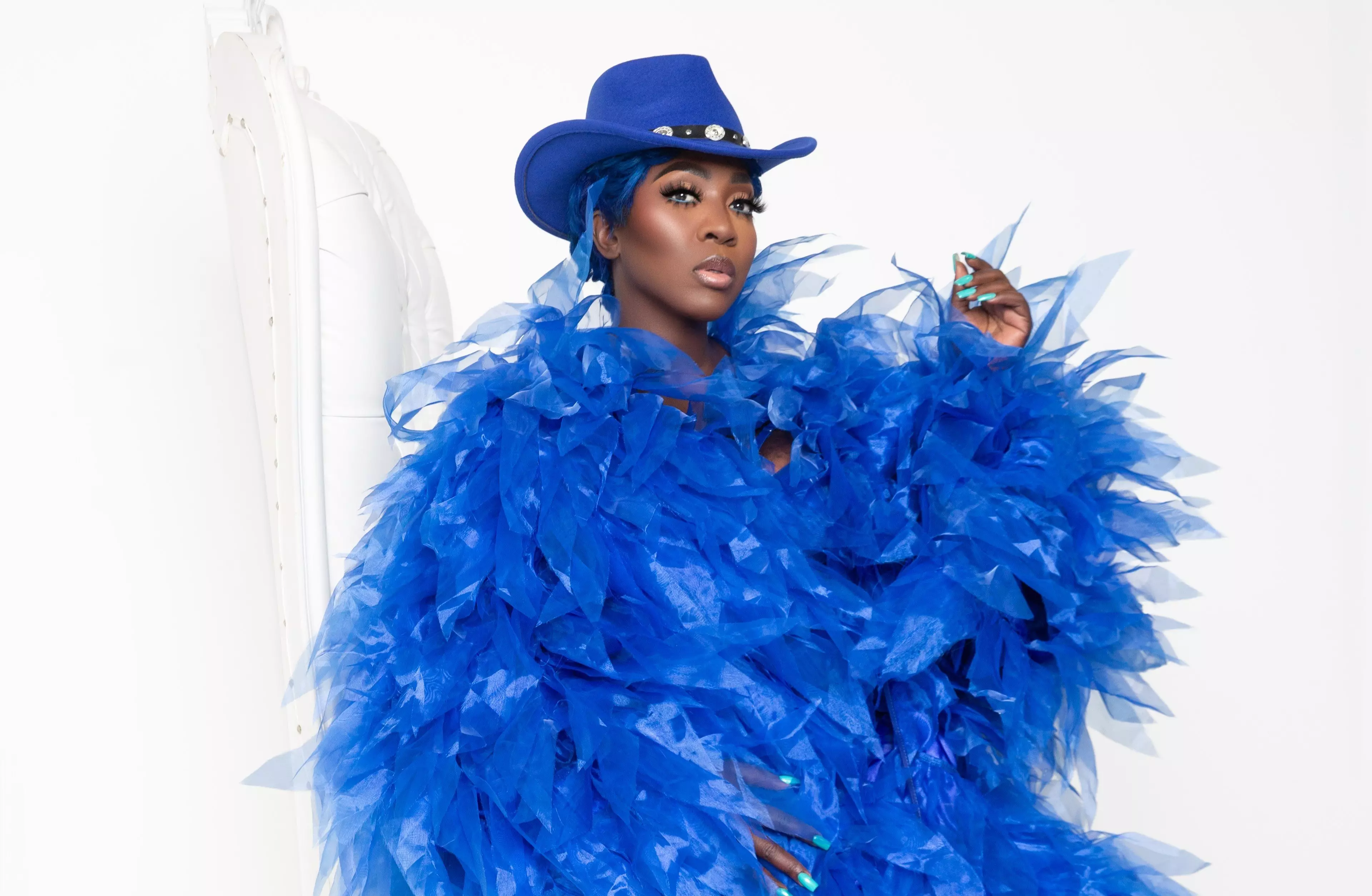
Dancehall Legend Spice Reflects On 'Mirror 25,' Her Near-Death Experience & Owning Her Own Vision
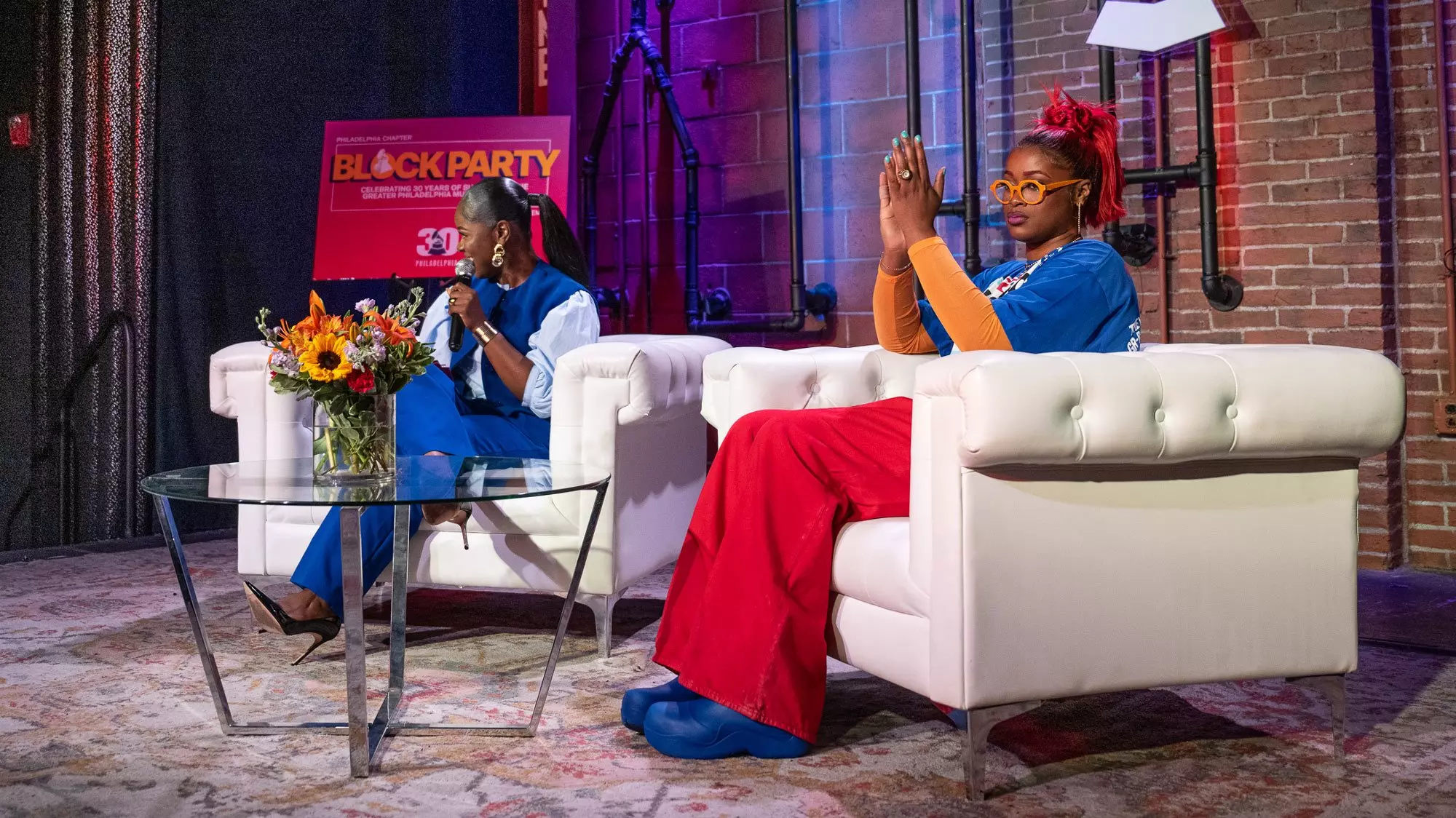
The Recording Academy Philly Chapter Celebrates 30 Years With An Inaugural Block Party & Fireside Chat With Tierra Whack

Photo: Kevin C. Cox/Getty Images
news
2024 Paris Olympics Opening Ceremony: Watch Celine Dion, Lady Gaga, Gojira & More Perform
The Olympic Games have long featured iconic musical performances – and this year is no different. Check out the performers who took the stage in the City of Light during the 2024 Olympics Opening Ceremony in Paris.
The 2024 Paris Olympics came to life today as the Parade of Nations glided along the Seine River for the opening ceremony. The opening spectacular featured musical performances from Lady Gaga, Celine Dion, and more. Earlier in the week, some of music’s biggest names were also spotted in the city for the Olympics, including Olympics special correspondent Snoop Dogg, BTS' Jin, Pharrell Williams, Tyla, Rosalía, and Ariana Grande.
Read More: When The GRAMMYs & Olympics Align: 7 Times Music's Biggest Night Met Global Sports Glory
Below, see a full breakdown of some of the special musical moments from the 2024 Paris Olympics opening ceremony.
Lady Gaga
In a grand entrance, Lady Gaga emerged behind a heart-shaped plume of feathers on the golden steps of Square Barye, captivating the audience with her cover of the French classic "Mon truc en plumes." Accompanied by cabaret-style background dancers, she flawlessly belted out the song, executed impressive choreography, and even played the piano.
Lady Gaga’s connection to the song is notable, as Zizi Jeanmarie, the original artist, starred in Cole Porter’s musical "Anything Goes," which was Lady Gaga’s debut jazz release.
"Although I am not a French artist, I have always felt a very special connection with French people and singing French music — I wanted nothing more than to create a performance that would warm the heart of France, celebrate French art and music, and on such a momentous occasion remind everyone of one of the most magical cities on earth — Paris," Lady Gaga shared on Instagram.
Celine Dion
Closing out the ceremony with her first performance in four years since being diagnosed with stiff-person syndrome, Celine Dion delivered a stunning rendition of Edith Piaf’s everlasting classic, "L’Hymne à l’amour" from the Eiffel Tower. Her impressive vocals made it seem as though she had never left.
This performance marked Dion’s return to the Olympic stage; she previously performed "The Power of the Dream" with the Atlanta Symphony Orchestra and composer David Foster for the 1996 Olympics.
Axelle Saint-Cirel
Performing the National Anthem is no small feat, yet French mezzo-soprano Axelle Saint-Cirel knocked it out of the park.
Dressed in a French-flag-inspired Dior gown, she delivered a stunning rendition of "La Marseillaise" from the roof of the Grand Palais, infusing the patriotic anthem with her own contemporary twist.
With the stirring lyrics, "To arms, citizens! Form your battalions. Let’s march, let’s march," Saint-Cirel brought the spirit of patriotism resonated powerfully throughout the city.
Gojira
Making history as the first metal band to perform at the Olympics Opening Ceremony is just one way Gojira made their mark at the event.
The French band took the stage at the Conciergerie, a historic site that once housed French kings during medieval times and later became a prison during the French Revolution, famously detaining Marie Antoinette – Creating a monumental moment as the first metal band to perform at the ceremony, but also stirring the pot as they used the chance to nod toward politics.
Performing a revamped version of "Ah! Ça Ira," an anthem that grew popular during the French Revolution, the artists aren’t new to using their songs as a vehicle for political messages. The GRAMMY-nominated group are outspoken about issues concerning the environment, particularly with their song, "Amazonia," which called out the climate crisis in the Amazon Rainforest. Using music to spread awareness about political issues is about as metal as it gets.
Aya Nakamura
Currently France’s most-streamed musician, Aya Nakamura went for gold in a striking metallic outfit as she took the stage alongside members of the French Republican Guard. As there were showstopping, blazing fireworks going off behind her, she performed two of her own hit songs, "Pookie" and "Djadja," then followed with renditions of Charles Aznavour’s "For Me Formidable" and "La Bohème."
Although there was backlash regarding Nakamura’s suitability for performing at the ceremony, French President Emmanuel Macron dismissed the criticism. "She speaks to a good number of our fellow citizens and I think she is absolutely in her rightful place in an opening or closing ceremony," Macron told the Guardian.
Latest News & Exclusive Videos

With Her 'Winter's Diary' Return, Tink Is Ready To Rep For "The Girls Going Through It"

New Music Friday: Listen To New Songs From ATEEZ & G-Eazy, Shawn Mendes, Latto, & More

Watch Alanis Morissette Win At The 1999 GRAMMYs

Dancehall Legend Spice Reflects On 'Mirror 25,' Her Near-Death Experience & Owning Her Own Vision

The Recording Academy Philly Chapter Celebrates 30 Years With An Inaugural Block Party & Fireside Chat With Tierra Whack

Photo: Brett Carlsen/Getty Images for Spotify
news
New Music Friday: Listen To New Songs From Halsey, MGK And Jelly Roll, XG & More
As July comes to a close, there's another slew of new musical gems to indulge. Check out the latest albums and songs from Paris Hilton and Meghan Trainor, Mustard and more that dropped on July 26.
July has graced us with a diverse array of new music from all genres, lighting up dance floors and speakers everywhere.
The last weekend of the month brings exciting new collaborations, including another iconic track from Calvin Harris and Ellie Goulding, as well as a fierce team-up from Paris Hilton and Meghan Trainor. Halsey and Muni Long offered a taste of their forthcoming projects, while Jordan Davis and Miranda Lambert each delivered fun new country tunes.
In addition to fresh collabs and singles, there's a treasure trove of new albums to uncover. Highlights include Ice Spice's Y2K!, Rakim's G.O.D., Sam Tompkins' hi, my name is insecure, Wild Rivers' Never Better, Tigirlily Gold's Blonde, and kenzie's biting my tongue.
As you check out all the new music that dropped today, be sure you don't miss these 10 tracks and albums.
mgk & Jelly Roll — "Lonely Road"
Although fans anticipated Machine Gun Kelly's next release to mark his return to hip-hop, no one seems to be complaining about "KellyRoll." Embracing the trend of venturing into the country genre, mgk teams up with fellow GRAMMY-nominated artist Jelly Roll on their newest track, "Lonely Road."
The genre-blending track interpolates John Denver's classic "Take Me Home, Country Roads." However, unlike Denver's sentimental ode to the simplicity of rural life, mgk and Jelly Roll reinterpret the track through the lens of romantic relationships that have come to a, well, lonely end.
As mgk revealed in an Instagram post, "Lonely Road" was a labor of love for both him and Jelly Roll. "We worked on 'Lonely Road' for 2 years, 8 different studios, 4 different countries, changed the key 4 times," he wrote. "We finally got it right."
Halsey — "Lucky"
In another interpolation special, Halsey samples not one but two classics in their latest single, "Lucky." The song's production features elements of Monica's 1999 hit "Angel of Mine," while the chorus flips Britney Spears' fan-favorite "Lucky" into a first-person narrative.
While Halsey has always been a transparent star, their next project is seemingly going to be even more honest than their previous releases. After first revealing their journey with lupus with the super-personal "The End" in June, "Lucky" further details their struggles: "And I told everybody I was fine for a whole damn year/ And that's the biggest lie of my career."
Though they haven't revealed a release date for their next project, Halsey referred to her next era as a "monumental moment in my life" in an Instagram post about the "Lucky" music video — hinting that it may just be their most powerful project yet.
Read More: Everything We Know About Halsey's New Album
Paris Hilton & Meghan Trainor — "Chasin'"
Ahead of Paris Hilton's forthcoming album, Infinite Icon — her first in nearly 20 years — the multihyphenate unveiled another female-powered collaboration, this time with Meghan Trainor. Co-produced by Sia, "Chasin'" is a lively pop anthem about discovering self-worth in romantic relationships and finding the strength to walk away from toxicity.
"She is the sister I always needed and when she calls me sis, I die of happiness inside," Trainor told Rolling Stone about her relationship with Hilton. Coincidentally, Trainor first wrote the track with her brother, Ryan, but the pop star was waiting for the right collaborator to hop on the track — and Hilton was just that.
"We made something truly iconic together," Trainor added. "It was a bucket list dream come true for me."
Empire Of The Sun — 'Ask That God'
A highly awaited return to music after eight years, Australian electro-pop duo Empire Of The Sun are back with their fourth studio album, Ask That God.
"This body of work represents the greatest shift in consciousness our world has ever seen and that's reflected in the music," says member Lord Littlemore in a press statement.
Like their previous work that transports listeners to a different universe, this album continues that tradition with trancey tracks like lead single "Changes" and the thumping title track. Ask That God offers a chance to reflect on the blend of reality and imagination, while also evoking the radiant energy of their past songs.
Calvin Harris & Ellie Goulding — "Free"
Dance music's collaborative powerhouse, Calvin Harris and Ellie Goulding, are back with another summer hit. Their latest track, "Free," marks the fourth collaboration between the duo — and like their past trilogy of hits, the two have another banger on their hands.
The track debuted earlier this month at Harris' show in Ibiza, where Goulding made a surprise appearance to perform "Free" live. With Harris delivering an infectious uptempo house beat and Goulding's silky vocals elevating the track, "Free" proves that the pair still have plenty of musical chemistry left.
Post Malone & Luke Combs — "Guy For That"
Post Malone's transition into country music has been anything but slow; in fact, the artist went full-throttle into the genre. The New York-born, Texas-raised star embraced his new country era with collaborations alongside some of the genre's biggest superstars, like Morgan Wallen and Blake Shelton. Continuing this momentum as he gets closer to releasing F-1 Trillion, Post Malone teams up with Luke Combs for the new track "Guy For That."
The catchy collaboration tells the story of a relationship that has faded, where the protagonist knows someone who can fix almost anything, except for a broken heart. It's an upbeat breakup song that, like Post's previous F-1 Trillion releases, can get any party going — especially one in Nashville, as Malone and Combs did in the track's music video.
Forrest Frank & Tori Kelly — "Miracle Worker"
Just one month after Surfaces released their latest album, good morning, the duo's Forrest Frank unveiled his own project, CHILD OF GOD — his debut full-length Christian album. Among several features on the LP, one of the standouts is with GRAMMY-winning artist Tori Kelly on the track "Miracle Worker."
Over a plucky electric guitar and lo-fi beats, Frank and Kelly trade verses before joining for the second chorus. Their impassioned vocals elevate the song's hopeful prayer, "Miracle Worker make me new."
Their collaboration arrives just before both artists hit the road for their respective tours. Frank kicks his U.S. trek off in Charlotte, North Carolina on July 31, and Kelly starts her world tour in Taipei, Taiwan on Aug. 17.
XG — "SOMETHING AIN'T RIGHT"
Since their debut in 2022 with "Tippy Toes," Japanese girl group XG has been making waves and showing no signs of slowing down. With their first mini album released in 2023 and now their latest single, "SOMETHING AIN'T RIGHT," the group continues to rise with their distinctive visuals and infectious hits.
The track features a nostalgic rhythm reminiscent of early 90s R&B, showcasing the unique personalities of each member. As an uptempo dance track, it's designed to resonate with listeners from all across the globe.
"SOMETHING AIN'T RIGHT" also serves as the lead single for XG's upcoming second mini album, set to release later this year.
Mustard — 'Faith of a Mustard Seed'
For nearly 15 years, Mustard has been a go-to producer for some of rap's biggest names, from Gucci Mane to Travis Scott. On the heels of earning his first Billboard Hot 100 chart-topper as a producer with Kendrick Lamar's "Not Like Us," he's back with his own collaboration-filled project.
Faith of a Mustard Seed features a robust 14-song track list with contributions from Vince Staples, Lil Yachty, Charlie Wilson, and more. The LP marks Mustard's fourth studio album, and first since 2019's Perfect Ten.
In an interview with Billboard, Mustard shared that the album's title is an ode to late rapper Nipsey Hussle, who suggested the title during one of their final conversations before his untimely death in 2019. And once "Not Like Us" hit No. 1, Mustard knew it was time to release the long-in-the-making album.
Latest News & Exclusive Videos

With Her 'Winter's Diary' Return, Tink Is Ready To Rep For "The Girls Going Through It"

New Music Friday: Listen To New Songs From ATEEZ & G-Eazy, Shawn Mendes, Latto, & More

Watch Alanis Morissette Win At The 1999 GRAMMYs

Dancehall Legend Spice Reflects On 'Mirror 25,' Her Near-Death Experience & Owning Her Own Vision

The Recording Academy Philly Chapter Celebrates 30 Years With An Inaugural Block Party & Fireside Chat With Tierra Whack
